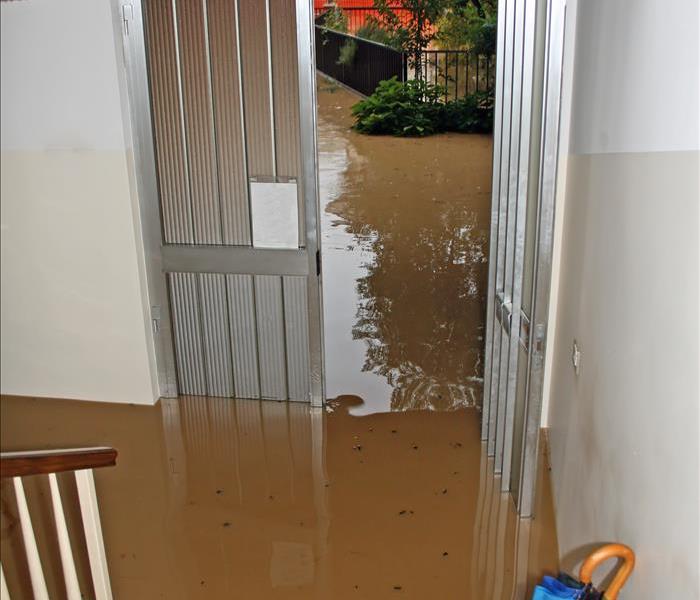Avoid These 4 Things After a Home Flood
1/14/2021 (Permalink)
When lakes, rivers, and sewers overflow into a home, the flood water brings more than moisture into a residence. The fluid harbors high levels of bacteria and microbes, making the dampness a structural hazard. Homeowners should be careful upon reentrance, taking great care to avoid certain things.
The Following are Four Things Not To Do
1. Resume Residence
Blackwater is not safe for others to be around. That means until everything is cleaned up and assessed properly, owners should reside in an alternate location. Make plans to stay with friends, neighbors or a hotel.
2. Handle Items With Bare Hands
A flooded home hosts organisms that should not come into contact with human skin. Seek professional assistance to examine the location, and if you do go inside be sure to wear protective gear such as gloves and rubber knee-high boots.
Experts are likely to wear clothing designed to safeguard them; plus, they may create a barrier among rooms that are safe versus contaminated.
3. Use Household Cleaners
Flood water absorbs quickly into porous materials. That means that carpets, drywall, and possessions could be polluted. Soap and other cleaners such as bleach do guarantee internal cleaning; therefore, it’s best to remove anything saturated from the premises.
4. Allow Premises to Dry Naturally
While water damage may seem innocent enough, it’s quite problematic. When left alone, it leads to secondary issues such as mold and mildew. Appropriate and immediate action should be taken to dry out the rooms using the right equipment. Industrial dehumidifiers extract humidity from the air and the walls. Moisture readers determine if spots are in the correct zones. Rely on these tools.
If a home is harmed by floodwater, homeowners should jump into action; however, that doesn’t necessarily mean grabbing a sponge and chemical bottle. Work with a water remediation team in Perry, OK, to handle the exposure in the right manner.



 24/7 Emergency Service
24/7 Emergency Service
